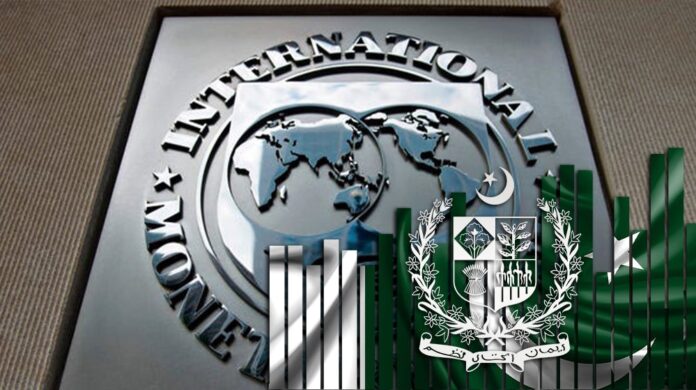Pakistan is expected to require $18.813 billion in gross external financing for fiscal year 2024-25, representing 4.7 per cent of the GDP, according to the International Monetary Fund (IMF).
This projection was outlined in the IMF’s recent report titled “2024 Article IV Consultation and Request for an Extended Arrangement under The Extended Fund Facility.”
The report forecasts a slight increase in external financing needs to $20.088 billion for the fiscal year 2025-26. Despite these projections, the IMF assures that the current program is fully financed with firm commitments for the first year and promising prospects for the subsequent period.
The IMF details that financing for FY 2025 includes $16.8 billion from the rollover of existing short-term financing and $2.5 billion in additional commitments from international partners such as China, Saudi Arabia, the Asian Development Bank (ADB), and the Islamic Development Bank (IsDB). These commitments are reinforced by pledges from key bilateral partners to maintain their exposure, crucial for the program’s stability.
Moreover, Pakistan expects to continue its relationship with foreign commercial banks, with loans totaling $6.6 billion expected to roll over. The anticipated multilateral disbursements are projected at $14 billion from FY 2025 to FY 2028, including significant contributions from the World Bank and the ADB.
While the IMF underscores the substantial financing assurances, it also highlights the inherent high risks and the necessity for vigilant monitoring to secure timely and sufficient financing during the program.
The ability of Pakistan to meet its repayment obligations is fraught with significant risks, primarily hinging on stringent policy implementation and the acquisition of timely external financing. The IMF warns that exceptionally high risks, such as elevated public debt and socio-political factors, could undermine policy execution and fiscal sustainability.
Pakistan’s economic officials have confirmed securing adequate support from international partners, which will bolster the country’s economic reforms and enhance external reserves. Despite this, Pakistan still faces a residual financing gap of $5 billion, which needs to be addressed within the program period to stabilize the economic environment.




